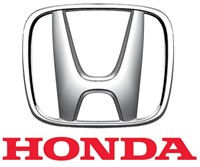Program 2018
October 22 - 23, 2018; San Diego, CA
Filter streams
7:45 AM - 8:45 AM
Registration & Refreshments
8:45 AM - 8:55 AM
Chair’s Opening Remarks
Madan Chakravarthi, Executive Director - Supply Chain Management, Maxim Integrated
Introductory remarks by the Chair in the plenary room
8:55 AM - 9:30 AM - Keynote
Leadership & Workforce Development
Performance Management: Driving Supply Chain Revenue Contribution through a Segmentation Strategy with Focus on Improving Agility
Yinka Osidipe, Director of Supply Chain, Amgen

9:30 AM - 10:05 AM - Keynote
Serving up Transparency: Being Proactive with Consumers
Dr. Paul van der Aar, Director Quality & Innovation, Heineken USA

What today’s consumers want to know extends well beyond a food or beverage product’s characteristics alone. In this digital era, transparency is not only the new norm, it’s expected, and that sentiment is felt most in the food & beverage industry. With customers increasingly becoming connoisseurs, it’s important for companies to make the transparency of what’s in their products known and accessible, the production process and origin, so consumers can stay informed.
As Heineken USA's Director of Quality and Innovation, I’ll highlight the Brewers’ Voluntary Disclosure Initiative by the Beer Institute, a massive shift by the industry toward a more transparent and open paradigm for our typical consumer. By providing the right information, consumers will have more trust in the products (and their producers), which will foster loyalty, and bring them back for another round...or two. I’ll also share how key learnings overseas, such as the, commitment by The Brewers of Europe to voluntarily go beyond current EU legislative requirements for such declarations in 2015 and Heinekens’ Drink Responsibly initiatives, are helping to forge new standards for food and beverage transparency around the world.
10:10 AM - 10:45 AM - Case Studies
IoT & Technology
Implementing the Softer Side of Lean
Vince Canino, Global Chief Operating Officer, Smardt

- Taking Lean and 5s to a New Level
- Implementing the Softer Side of Lean
IoT & Technology
Emerging Tech and its Impact on Supply Chain

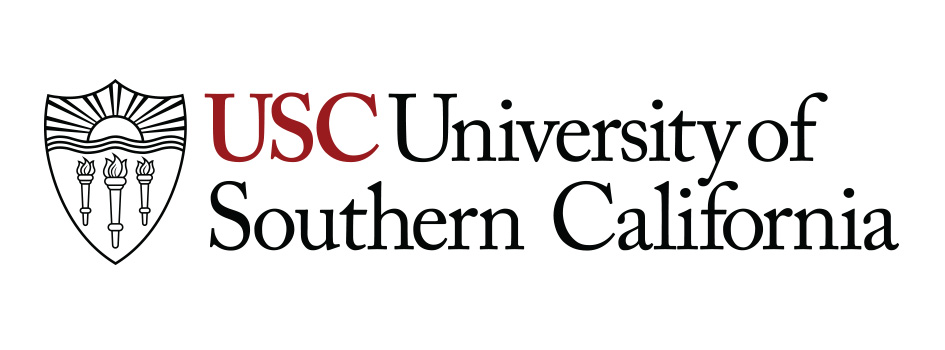 “The world is moving so fast now-a-days that the man who says it cannot be done is generally interrupted by someone else doing it.”
“The world is moving so fast now-a-days that the man who says it cannot be done is generally interrupted by someone else doing it.”Those lines are as true today as when they were first published in the early 1900's. It is not just our everyday world that appear to be evolving before our very eyes. Global supply chains are evolving at a faster rate than at any point in history. With the advancements of Machine Learning, AI, Blockchain and other technologies, the heirloom supply chain has to evolve in order to keep up with the modern demands.
10:45 AM - 11:45 AM
iSolve & Networking Refreshments

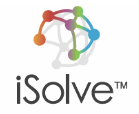
11:45 AM - 12:20 PM - Case Studies
Collaboration
Stronger Together
Meyer Skalak, Senior Director Purchasing, Chick-fil-A
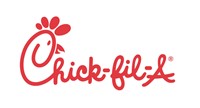
- An overview of Chick-fil-A’s supply chain
- Steps to successful collaboration
3 Pillars to Planning Success: Analytics, Practicality Adoption, and Selling to Management
Mike Lavaglio, Director of Supply Chain Planning, Dexcom


- There is continued pressure to drive customer experience metrics up while working capital values go down
- We will examine various ways to use analytics to calculate safety stock/planning techniques
- How to apply qualitative business insights
- The importance of gaining adoption across peers and management.
12:25 PM - 1:00 PM - Keynote
IoT & Technology
AGCO SMART Logistics – Planting the Seeds of Digital Innovation
Greg Toornman, Global Vice-President, Materials, Logistics, and Freight Management, AGCO

- The convergence of four innovative initiatives (TMS / Supplier Collaboration / Risk Management / Supplier Performance Management) into one integrated approach.
- Forward looking and globally integrated transportation capacity management system.
- Real time risk management across the global supply chain.
- Global Materials Management Transformation across 54 global sites.
- Driving a competitive advantage through supply chain innovation
1:00 PM - 2:00 PM
Networking Lunch

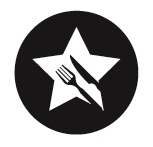
2:00 PM - 2:35 PM - Keynote
Leadership & Workforce Development
The Road to Third-Party Manufacturing Success – From Concept to Contract
Osmar Rodriguez, VP Manufacturing Operations & Supply Chain, Dr Brandt Skincare
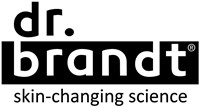
- Introducing an external third-party player in the supply chain process of a given company results in unavoidable, increased complexity
- Complexity increases risks associated with supply-chain security, quality control of the product or service that is outsourced, and compliance
- Accepting a third party in the supply chain process implies explicit acknowledgment of the fact that the control has been surrendered
- The Road to third party manufacturing success is to learn how to keep the balance right between the control that has been surrendered and the third-party management that is required to monitor and manage the interactions with the external party
2:35 PM - 3:10 PM - Keynote
Leadership & Workforce Development
Creating a Problem-solving Culture

 Every organization, leader and individual desires to be successful. Your culture or repeated behaviors (both organizational and personal) are the foundation of your success.
Every organization, leader and individual desires to be successful. Your culture or repeated behaviors (both organizational and personal) are the foundation of your success.
If we want to win in life and business, we must establish winning behaviours. As business leaders our primary role is to create an environment where ideal behaviors can and will evolve and thrive. We must create a circumstance where our employees are able to make good business choices day in and day out. The sum of these employee’s choices drive our results. The circumstance we create must include organizational clarity and alignment on what winning means.
This session we will introduce a process for the deliberate creation of culture. As part of this process, we will participate in alignment exercises that will provide a solid foundation for your continuous improvement culture.
3:10 PM - 4:10 PM
iSolve & Networking Refreshments


4:10 PM - 4:45 PM - Keynote
Building a Hybrid Supply Chain Ecosystem to Enable Growth in New and Volatile Markets
Stefan Kluge, Senior Director Strategy & Program Management, Foundry & OSAT Management, Intel
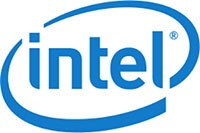
- Stefan will be travelling all the way from Germany to speak at the American Supply Chain Summit after his talk was very well received at the European Supply Chain Summit

- Building a hybrid supply chain ecosystem to enable growth in new and volatile markets
4:45 PM - 5:30 PM - Panel Discussion
Leadership & Workforce Development
Training and Retaining - The Future Workforce of the Supply Chain
Mary Blair, Senior Vice President, Supply Chain, Accuride Corporation
Meyer Skalak, Senior Director Purchasing, Chick-fil-A
Osmar Rodriguez, VP Manufacturing Operations & Supply Chain, Dr Brandt Skincare



- The advances in technology that are enabling automation means the skills of the past will not deliver the needs of the future.
- As technology and demands evolve so must the workforce.
- Supply chain roles are becoming increasingly higher skilled. How can we achieve the balance between digital competency and the soft skills needed to lead?.
- How to attract and retain the talent of tomorrow to avoid the skills gap.
5:30 PM - 5:35 PM
Chair’s Closing Remarks
Madan Chakravarthi, Executive Director - Supply Chain Management, Maxim Integrated
5:35 PM - 6:40 PM
Evening Drinks Reception
7:00 PM - 10:00 PM - Awards Dinner
American Manufacturing & Supply Chain Leadership Awards 2018

The American Manufacturing & Supply Chain Awards 2018 will be nominated and voted for by industry professionals from all across the country. The awards are designed to recognize and celebrate the achievements of individuals and their teams who have displayed leadership excellence.
The following awards will be presented at the dinner:
- American Supply Chain Leadership Award 2018
- American Manufacturing Leadership Award 2018
Please click here for more information on the Awards.
8:00 AM - 8:50 AM
Registration & Refreshments
8:50 AM - 8:55 AM
Chair’s Opening Remarks
Madan Chakravarthi, Executive Director - Supply Chain Management, Maxim Integrated
Introductory remarks by the Chair in the plenary room
8:55 AM - 9:30 AM - Keynote
Collaboration
Supply Chain Performance: Collaboration and Performance Correlation
Mary Blair, Senior Vice President, Supply Chain, Accuride Corporation

Supply chain in the contemporary global environment relies on various resources to survive in a diver, international, and competitive marketplace. Collaboration and the need to understand its influence on performance, specifically within the global supply chain, has become increasingly important.
This session presentation will review supply chain performance as it has evolved and explore the potential influence collaboration has on global supply chain performance. Specifically, collaboration on inventory forecasting and on time delivery performance.
9:30 AM - 10:05 AM - Keynote
IoT & Technology
Industrial IoT meets Manufacturing and Supply chain - Industry 4.0
Niraj Jha, Director of Logistics, Niagara Bottling
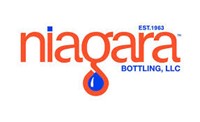
10:10 AM - 10:45 AM - Case Studies
Leadership & Workforce Development
Risk Management
Avoiding, Defending, and Managing High-Stakes Supply Chain Disputes
Rosemary Coates, Expert Witness, Legal Blacksmith

 Today, Supply Chain Executives have an important place in the C-suite, because companies’ key supply chain strategies and operations involve hundreds of millions of dollars in business. Supply chains today are more global and leaner, which means that they are increasingly stretched, brittle, and thin. As a result, supply chain disputes are more likely to erupt, and when they do, much more is at stake than ever before. This session will discuss the common characteristics of high stakes supply chain disputes, how to avoid them, and how to defend your companies when they do land in court.
Today, Supply Chain Executives have an important place in the C-suite, because companies’ key supply chain strategies and operations involve hundreds of millions of dollars in business. Supply chains today are more global and leaner, which means that they are increasingly stretched, brittle, and thin. As a result, supply chain disputes are more likely to erupt, and when they do, much more is at stake than ever before. This session will discuss the common characteristics of high stakes supply chain disputes, how to avoid them, and how to defend your companies when they do land in court.
10:45 AM - 11:45 AM
iSolve & Networking Refreshments


11:45 AM - 12:20 PM - Case Studies
IoT & Technology
Machine Learning in Supply Chain – the Challenges and the Opportunities
Madan Chakravarthi, Executive Director - Supply Chain Management, Maxim Integrated

Supply Chain of today has evolved over the decades. Companies use Advanced Planning and Supply Chain systems more commonly than before but there is still a gap when compared to how ERP is being used. Digital Supply Chain and Industry 4.0 are providing the framework for the next phase of Supply Chain. However, Machine Learning is going to change the landscape of Supply Chain in the future. As a Supply Chain practitioner, I will be sharing my thoughts on the opportunities, challenges thereof and some of the use cases that are being explored at Maxim Integrated.
Seed to Sale: The Cannabis Supply Chain
Andy Williams, CEO, Medicine Man
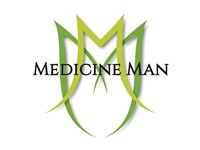
- Walk-through of the cannabis supply chain, including the immaculate conception of the original raw material
- The over-arching burden of regulation
- Vertical integration solution
- Supply chain challenges / opportunities
- Future of cannabis supply chain
12:25 PM - 1:00 PM - Keynote
Collaboration
Communication with Customers - From Innovators to Pioneers
Marco Padilla, Global Director, Supply Chain Management, GST Autoleather
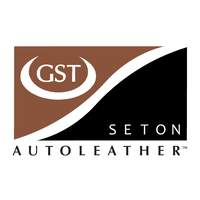
- Communication with all of the supply chain –with OEMs and customers.
- The variety of benefits this has brought
- How we have become pioneers in the leather automotive industry doing this
1:00 PM - 2:00 PM
Networking Lunch


2:00 PM - 2:35 PM - Keynote
IoT & Technology
Advanced Supply Chain Technologies – Viability, ROI and Implementation
Chris Gopal, Executive in Residence , University of California, San Diego

2:35 PM - 3:10 PM - Keynote
Leadership & Workforce Development
Impact of Information Asymmetry to Quality in Food Manufacturing Organizations

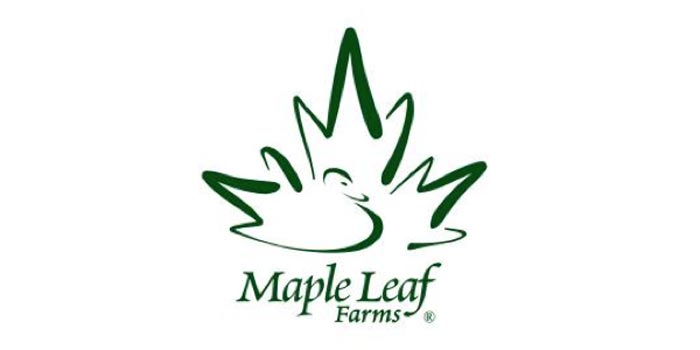 There is an insatiable consumer-appetite for organic, all natural, non-GMO, antibiotic free, and gluten free foods. The productions in these market segments are estimated to grow by 16% annually through 2020.
There is an insatiable consumer-appetite for organic, all natural, non-GMO, antibiotic free, and gluten free foods. The productions in these market segments are estimated to grow by 16% annually through 2020.
Consumers are redefining expectations for transparency and traceability in farm-to-fork supply chains in addition to demanding local sourcing, antibiotic-free, non-GMO, cage-free, etc. More food startup companies make claims of organic, all natural, non-GMO, antibiotic free, and/or gluten free. Major food companies pivot to offer new products in these categories. Compositions of our foods are shifting.
As new food products enter the marketplace, food manufactures will need to avoid costly recalls and potential consumer health issues by verifying food safety of products on the frontend. As foods approach being in productions, food manufacturers face more considerations about costs, quality control, and record-keeping. From sourcing to packaging and to tracking, food ingredients and finished goods come from all over the world.
Collaborations among supply chain partners and full integrations throughout networks of suppliers and customers are critical elements. Food companies that have fully integrated supply chain and customer networks are more liked to succeed, with access to the same information, working towards shared missions to deliver results, and being ahead of their competitors. Connected supplier and customer networks will allow food companies to be agile when faced with issues, responsive to recalls, and to be flexible and efficient.
3:10 PM - 3:20 PM
Chair’s Closing Remarks
Madan Chakravarthi, Executive Director - Supply Chain Management, Maxim Integrated
